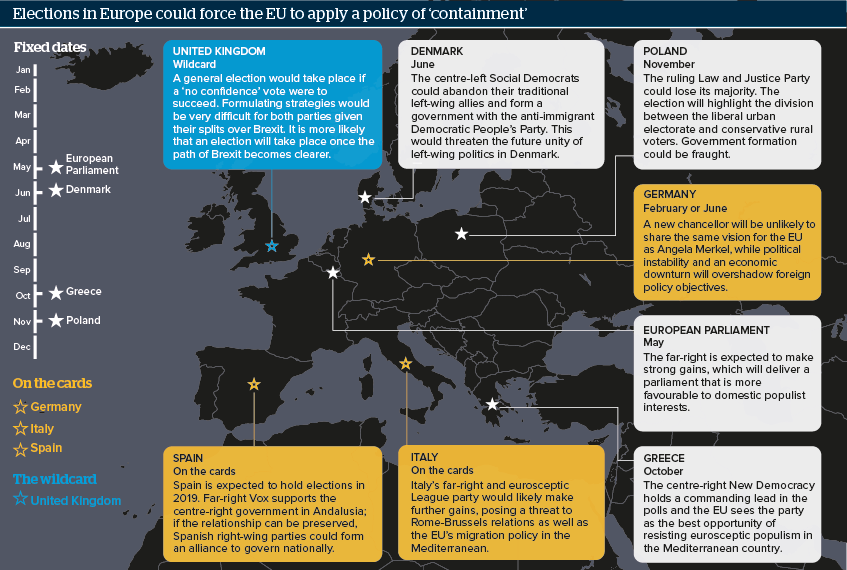Elections in Europe will damage EU cohesion
Mainstream parties will be forced to implement populist policies or face risking electoral losses
Source: Oxford Analytica
Outlook
Domestic troubles and an economic downturn will overshadow foreign policy objectives across the EU. The gains of populist parties could result in EU leaders applying a policy of ‘containment’ rather than driving deeper cooperation and integration.
Even if populist parties do not enter government following national elections, it is already clear that they do not need to be in office to be effective.
In the cases of Spain and Germany, mainstream centre-right parties have adopted harder positions on immigration and other ‘cultural insecurities’ in response to slumping support and the successful rise of populist parties. Indeed, working with mainstream parties could become more fraught for the EU in 2019.
Impacts
- Under pressure from right-wing parties, Spain could be forced to apply pressure on other EU countries to take in migrants.
- Smaller EU countries will focus on forming long-term strategic alliances with similar players.
- Europe’s Green parties will become an increasingly significant player in the future of centre-left politics.
- If an extension of Article 50 runs beyond May, the United Kingdom could run candidates for the European Parliament elections.
See also
- Connectivity and training could increase EU equality - Jan 24, 2019
- ‘Nationalism-lite’ will contaminate mainstream Europe - Dec 17, 2018
- More graphic analysis
